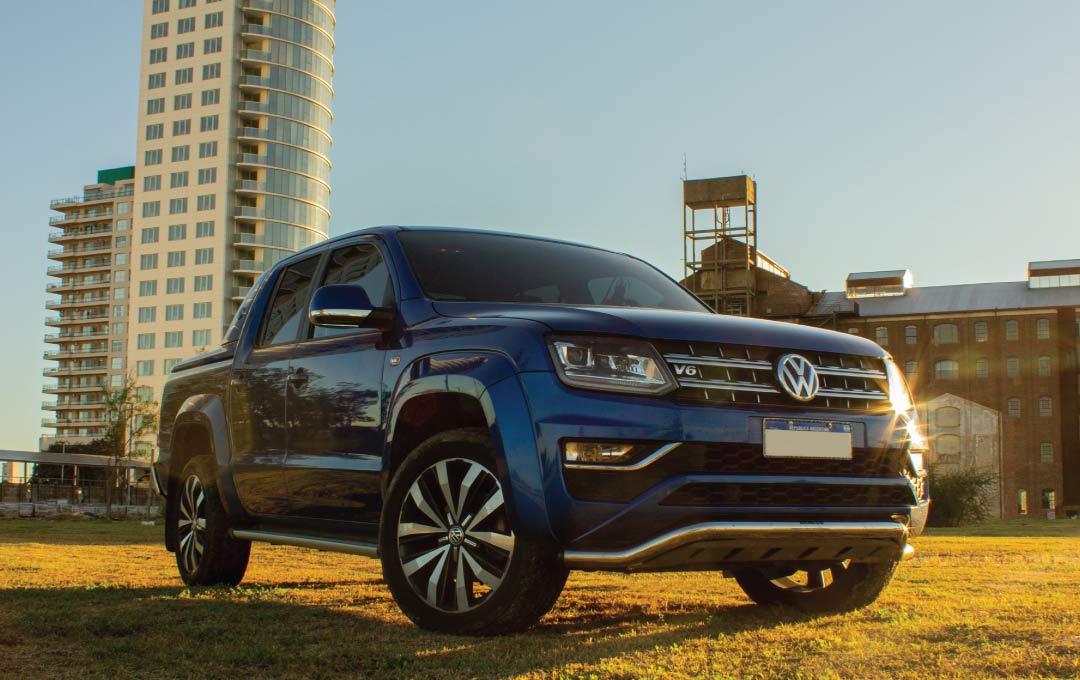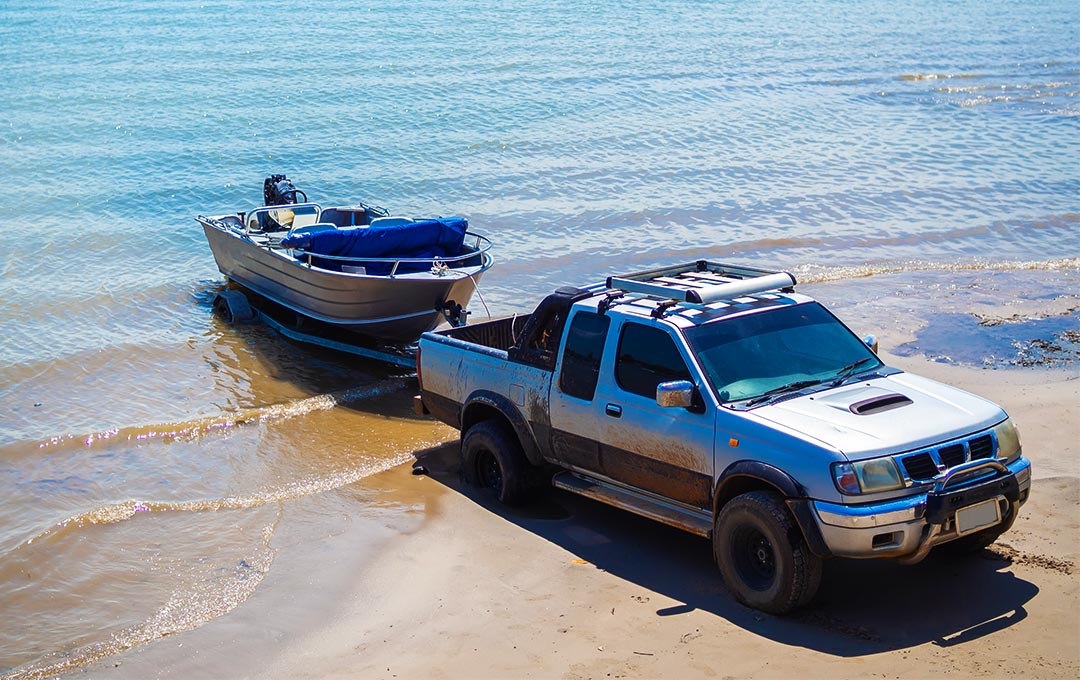Whether you’re towing caravans, a ski boat or a horse float, once you know the trailer’s specifications, you can start looking for the best towing vehicle.
Towing terms to know
To find a vehicle to suit your towing requirements, you first need to understand the jargon used when rating towing capacities.
Kerb weight tells you how much a vehicle weighs when it’s sitting by the kerb, ready to be driven. Kerb weight includes standard equipment, a full tank of fuel, and all necessary liquids — such as oil and coolants — required to jump in and drive it away. It does not include optional extras, such as the weight of a bull bar.
This is the maximum weight of everything your car can carry. This includes everything in your vehicle, such as passengers, tools, or luggage.
The GVM is the most your vehicle can weigh when loaded. It is the kerb weight plus the payload of the vehicle. When towing, the tow ball down weight counts toward the GVM.
GCM is the weight limit for the combined weight of your vehicle and trailer.
With a solid grasp of the acronyms, there are a few rules you need to follow to ensure you legally tow your trailer.
Even if you have a powerhouse of a vehicle that can reliably tow anything, to ensure you are towing legally, you need to ensure you do not go over the gross combination mass of your vehicle and trailer together.
When packing for a holiday, your payload (passengers, luggage and anything else you pack) can quickly add up. Ensure you know the weight of your payload to make sure you do not go over your vehicles GVM.
Your payload should be distributed evenly across the vehicle. Putting your entire payload over the rear axle will see you exceed the maximum weight your vehicle can legally carry and could even void your insurance in the event of an accident.
Regardless of how much your trailer is rated to carry, you cannot tow more than the vehicles rated towing capacity. For example, if your vehicle is rated to tow 3.5 tonne, and the trailer is rated to carry 4 tonne, you can still tow the trailer but only if the total weight is less than 3.5 tonne.
Now you know the rules, let’s find you the best tow vehicle.
If you’re looking at purchasing a tow vehicle and are considering a car loan, we’re more than happy to discuss your finance needs.
Apply for a car loan
Volkswagen Amarok

If you’re looking for a four-wheel drive with enough grunt for off-road towing, look no further than the VW Amarok.
Ford Everest

A comfortable family vehicle derived from Ford’s tough Ranger Ute, the Ford Everest is a great choice. For around $50,000, you can have yourself a rear-wheel-drive five-seater SUV with 3,000kg maximum towing capacity. Perfect for family trips with the fully loaded caravan or for towing a ski boat.
Toyota Land Cruiser 200 Series

The Land Cruiser is one of the most popular and trusted SUVs for towing and makes easy work out of towing a caravan (or whatever else you need to move!)
The 3,500kg braked towing capacity is easily pulled along with the 4.5L Twin Turbo diesel V8. Tow tests suggest the Land Cruiser’s performance is made comfortable with the six-speed automatic transmission, so you can sit back and relax while the Land Cruiser does all of the hard work for you.
When towing, the fuel economy is about 19L/100km compared to 7.9L/100km combined.
Remember your unique needs when looking for the best vehicle
While the towing capacity of a vehicle is important when you plan on towing, make sure the vehicle ticks all of the other boxes on your list of requirements too! And don’t forget to know your car budget before you begin your search!
If you’re looking at purchasing a tow vehicle and are considering a car loan, we’re more than happy to discuss your finance needs.
While the towing capacity of a vehicle is important when you plan on towing, make sure the vehicle ticks all of the other boxes on your list of requirements too! And don’t forget to know your car budget before you begin your search!
Apply for a car loanDisclaimer: The information above is of a general nature only and does not consider your personal objectives, financial situation or particular needs. You should consider seeking independent legal, financial, taxation or other advice to check how the information relates to your particular circumstances. We do not accept responsibility for any loss arising from the use of, or reliance on, the information.
Content prepared by an external writer covering topics that may be of interest to our customers. The content does not necessarily represent the views or opinions of Finance One Commercial.
All loan applications subject to normal lending criteria. Fees and charges payable. Terms and conditions apply.
Finance One Commercial means:
Finance One Commercial Pty Ltd | ABN:




